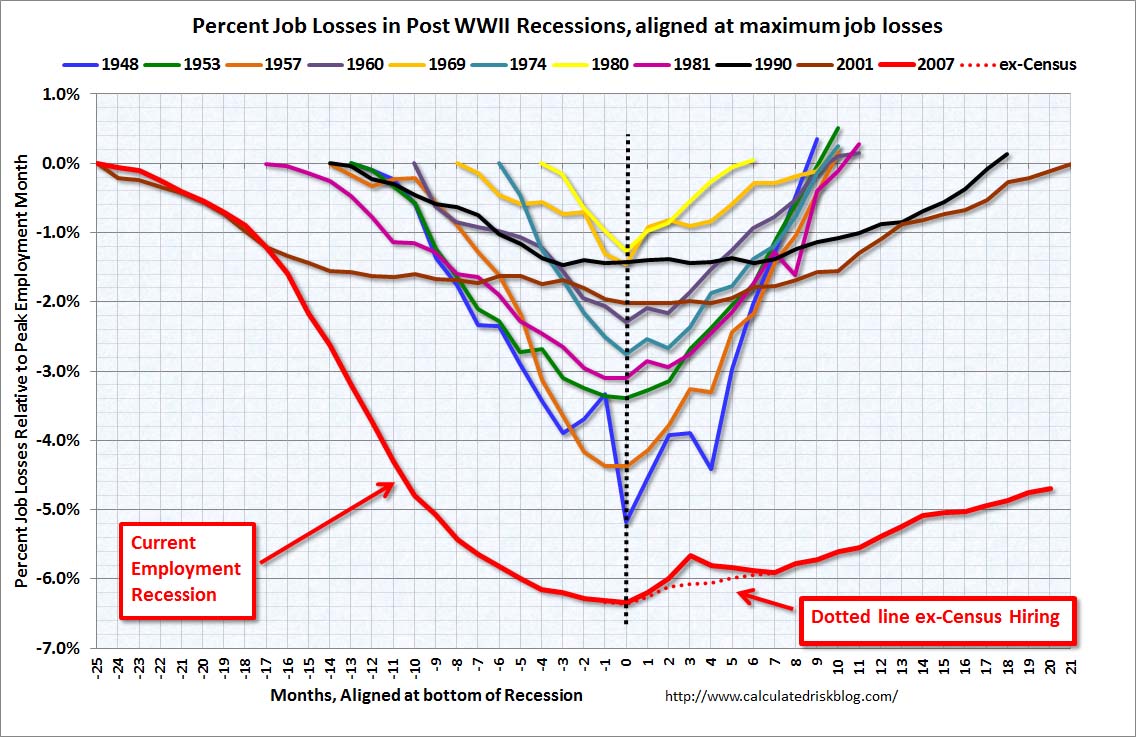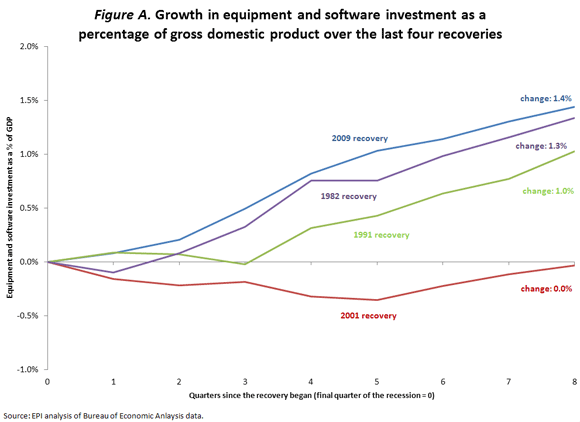Q: Does technology complement or replace human labor?
A: Yes.
I’ve looked at this in some depth — with much thinking help from Robin Hanson — here, here and here.
After thinking and reading about it for another year or so, I’m prepared to make the bald statement: Yes, an ever-increasing number of workers in America are being priced out of the labor market by technology, with help from low-cost labor in other countries (which is underpriced at least partially because low-wage employers in those countries don’t bear the costs of negative social and environmental externalities).
We’re at the “knowledge” end of a global economy with ever-increasing technology-driven productivity, meaning that ever more workers don’t have the wherewithal, are incapable, of doing the technological knowledge work that allows them to claim a decent share of the pie. The human capacity for self-improvement — of practical and especially cognitive skills — is limited. I’m suggesting that we’re hitting, have hit, that limit. An increasing number of people simply can’t climb that ladder, can do no more than gaze up at that promised city on the hill.
Those who invoke the Luddite Fallacy ignore this reality. Even a stopped clock is right eventually.
I want to keep this post short, so I’ll just end with the two graphics that for me, drive this point home:
Check out the progression: ’81, ’90, ’01, ’07. (Recessions are nature’s way of keeping the little guy down.)
Compare this:
Not the same steady progression as in the previous, but I think the stark difference between the two speaks volumes.
Update: At risk of repeating myself again some more, my solution is a greatly expanded (and simplified) Earned Income Tax Credit, with benefit levels indexed to some measure of unemployment.


Comments
3 responses to “Yes: Machines Are Replacing Humans”
I am not sure in what sense you mean “ever more workers don’t have the wherewithal, are incapable, of doing the technological knowledge work that allows them to claim a decent share of the pie….” and etc in the same paragraph. Old dogs cannot learn new tricks? They are stupid, as distinguished from ignorant? Sam Zell is too poor to train them? (He says he is…)
And so supposing that everyone who “has the wherewithal” got trained etc., don’t you then just have an oversupply of competent people, and pie shares just get smaller? (I saw my father-in-law, a mechanical engineer, laid off at the age of 55 in the mid 80’s, replaced by a 2 year tech school grad half his age but a whiz at CAD. The 55 year old spent the next 10 years doing periodic contract work, but never returned to full time work the rest of his life.)
Not to be rude, but hasn’t it been obvious for a real long time that very few people in our economy actually produce things (like cars and food and tables and chairs) and that only a few more do things of actual service (like cut your hair or clean your teeth or – with hope – teach your kid to read and write); and that most people make a living in some kind of “busy” work – be it insurance or entertainment or lobbying politicians or chattering incessantly about Michael Jackson’s doctor on the boob tube…?
So is your point mostly that this tendency is accelerating to crisis conditions, and that people should go watch and reflect upon Rod Serling’s little episode, “The Brain Center at Whipples”….?
[…] spent a lot of time considering (here, here, here, and here) the notions of technological unemployment and the Luddite Fallacy: the idea that technologically […]
[…] 21, 2012 by admin I’ve spent a lot of time considering (here, here, here, and here) the notions of technological unemployment and the Luddite Fallacy: the idea that technologically […]